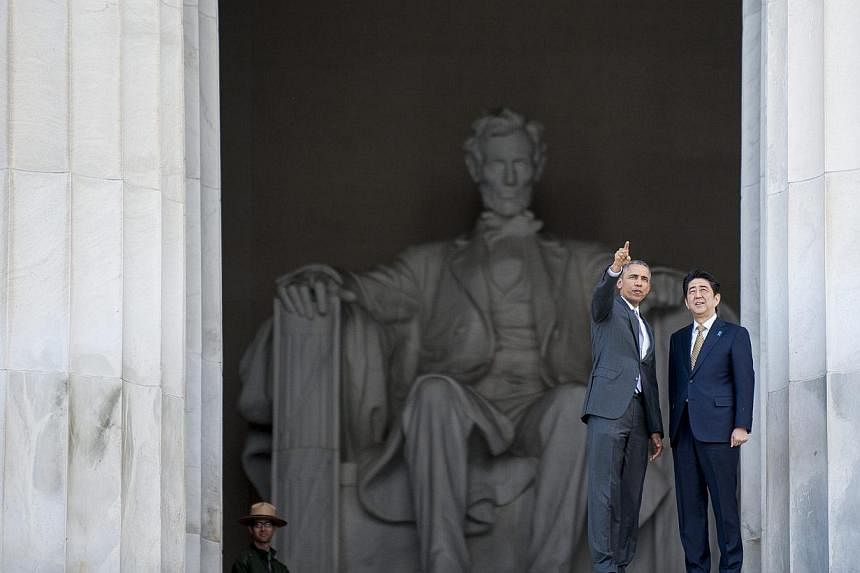WASHINGTON analysts are hailing the landmark revision to the US-Japan security cooperation guidelines, saying the move - which expands the role of the Japanese military - will serve as an anchor to the occasionally erratic White House pivot to Asia.
And though most acknowledge that the move to pave the way for the Japanese military to act outside its domestic borders will likely annoy Japan's neighbours such as China and North Korea, they argue that it will ease tension in the region in the long run rather than raise it.
Said Ms Shihoko Goto, Wilson Centre's senior associate for North-east Asia: "The renewed US-Japan defence guidelines should help support US efforts to rebalance towards the Asia-Pacific and ensure greater stability in the region amid rising threats."
It is a view shared by Dr Patrick Cronin of the Centre for a New American Security. He said it was now critical that Japan play a larger role in ensuring stability. "The world and region can no longer afford to have the world's third-largest economy relegated to a second-class security role.
"These defence guidelines reinforce the ability of the US-Japan alliance to help deter threats such as those posed by North Korea's growing nuclear arsenal while simultaneously shaping an increasingly contested peace. Japan's inaction would be a larger threat to regional instability than Japan's proactive contribution to peace."
Perhaps anticipating a pushback from the Chinese, Obama administration officials stressed that nothing in the ongoing US visit by Japanese Prime Minister Shinzo Abe should be construed as targeted at Beijing.
"I think the fundamental message is that the US and Japan both want a productive and constructive relationship with China," US National Security Council senior director for Asian affairs Evan Medeiros told foreign reporters in Washington on Monday.
"We'd like to work with China both in Asia and globally both on economic and security challenges."
The US-Japan security guidelines - last revised in 1997 - reflect a recent significant shift in the country's post-World War II defence policies. Where the Japanese military used to be constrained to self-defence, the guidelines now talk about the US and Japanese militaries making "contributions to international security initiatives... such as peacekeeping operations, maritime security, and logistic support".
The agreement announced on Monday also indicated that Japan could shoot down missiles being targeted at the US and called for deeper cooperation on cyber security.
Analysts also welcomed the security agreement for its deeply symbolic nature, marking how far ties between the US and Japan have come in the 70 years since World War II ended.
Yet, some argue that the US-Japan global alliance will remain lopsided without a breakthrough on free trade as well. The two countries are currently involved in talks on the 12-nation Trans-Pacific Partnership free trade deal.
Brookings Institution senior fellow Mireya Solis wrote in a blog: "What we need is a simple but powerful statement from both leaders that the United States and Japan have moved past their differences on trade.
"If we don't get that statement during the summit, the summit can at best be only a partial success."


